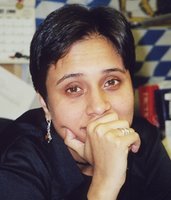Profile of India's President: APJ Abdul Kalam

Born on 15th October 1931 at Rameswaram, in Tamil Nadu, Dr. Avul Pakir Jainulabdeen Abdul Kalam, specialized in Aero Engineering from Madras Institute of Technology.
He initially worked in DRDO in 1958 and then joined ISRO in 1963. Dr. Kalam has made significant contribution to Indian satellite and launch vehicles of ISRO and also in the missile programme of DRDO. As project Director, SLV-III, he contributed for the design, development and management of India’s first indigenous Satellite Launch Vehicle (SLV-III) to inject Rohini satellite in the near earth orbit. He was responsible for the evolution of ISRO’s launch vehicles programme and configurations. He rejoined DRDO in 1982 and conceived the Integrated Guided Missile Development Programme (IGMDP) for indigenous missiles.
He was Scientific Adviser to Defence Minister and Secretary, Department of Defence Research & Development from July 1992 to December 1999.
As Chairman, Technology Information, Forecasting and Assessment Council (TIFAC), he generated the Technology Vision 2020 documents – a road map for transforming India from Developing India to Developed India. He provided overall guidance to a number of Homegrown Technology Projects and major technology missions such as Sugar, Advanced Composites and Fly Ash utilization.
Dr. Kalam has served as the Principal Scientific Advisor to the Government of India, in the rank of Cabinet Minister, from November 1999 to November 2001. He was primarily responsible for evolving policies, strategies and missions for generation of innovations and support systems for multiple applications. Also, generating science and technology task in strategic, economic and social sectors in partnership with Government departments, institutions and industry. Dr. Kalam was also the Chairman, Ex-officio, of the Scientific Advisory Committee to the Cabinet (SAC-C).
Dr. Kalam took up academic pursuit as Professor, Technology & Societal Transformation at Anna University, Chennai and involved in teaching and research tasks. Above all he is on his mission to ignite the young minds for national development by meeting high school students across the country.
Dr. Kalam was conferred with the Degree of Doctor of Science (D.Sc. Honoris Causa) by 30 universities/academic institutions. He is recipient of several awards including the Indira Gandhi Award for National Integration 1997.
Dr. A.P.J. Abdul Kalam has been awarded Padma Bhushan in 1981, Padma Vibhushan in 1990 and BHARAT RATNA in 1997.
He initially worked in DRDO in 1958 and then joined ISRO in 1963. Dr. Kalam has made significant contribution to Indian satellite and launch vehicles of ISRO and also in the missile programme of DRDO. As project Director, SLV-III, he contributed for the design, development and management of India’s first indigenous Satellite Launch Vehicle (SLV-III) to inject Rohini satellite in the near earth orbit. He was responsible for the evolution of ISRO’s launch vehicles programme and configurations. He rejoined DRDO in 1982 and conceived the Integrated Guided Missile Development Programme (IGMDP) for indigenous missiles.
He was Scientific Adviser to Defence Minister and Secretary, Department of Defence Research & Development from July 1992 to December 1999.
As Chairman, Technology Information, Forecasting and Assessment Council (TIFAC), he generated the Technology Vision 2020 documents – a road map for transforming India from Developing India to Developed India. He provided overall guidance to a number of Homegrown Technology Projects and major technology missions such as Sugar, Advanced Composites and Fly Ash utilization.
Dr. Kalam has served as the Principal Scientific Advisor to the Government of India, in the rank of Cabinet Minister, from November 1999 to November 2001. He was primarily responsible for evolving policies, strategies and missions for generation of innovations and support systems for multiple applications. Also, generating science and technology task in strategic, economic and social sectors in partnership with Government departments, institutions and industry. Dr. Kalam was also the Chairman, Ex-officio, of the Scientific Advisory Committee to the Cabinet (SAC-C).
Dr. Kalam took up academic pursuit as Professor, Technology & Societal Transformation at Anna University, Chennai and involved in teaching and research tasks. Above all he is on his mission to ignite the young minds for national development by meeting high school students across the country.
Dr. Kalam was conferred with the Degree of Doctor of Science (D.Sc. Honoris Causa) by 30 universities/academic institutions. He is recipient of several awards including the Indira Gandhi Award for National Integration 1997.
Dr. A.P.J. Abdul Kalam has been awarded Padma Bhushan in 1981, Padma Vibhushan in 1990 and BHARAT RATNA in 1997.


